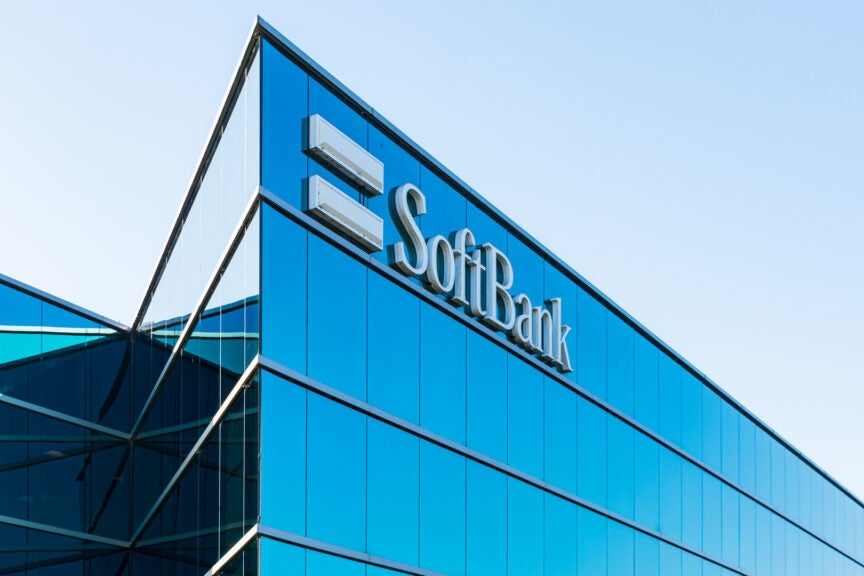Unpacking Elon Musk’s Critique: Is SoftBank’s Masayoshi Son Overleveraged in the AI Era?
In a striking commentary that has reverberated throughout the tech industry, Elon Musk recently labeled SoftBank CEO Masayoshi Son as “overleveraged.” This statement comes in the wake of SoftBank’s massive $16 billion loan for OpenAI’s Stargate project, raising urgent questions about the sustainability of such ambitious investments in the rapidly evolving artificial intelligence (AI) landscape. This article delves into Musk’s critique, exploring the implications of SoftBank’s financial strategies, the nature of AI investments, and what it means for the future of tech ventures.
The Context of Elon Musk’s Critique
Elon Musk, known for his forthright opinions and bold ventures, has been a pivotal figure in the tech industry. His critique of Masayoshi Son comes at a time when SoftBank, under Son’s leadership, has been making headlines for its aggressive investment strategies, particularly in AI. SoftBank’s financial maneuvers, including the significant loan for OpenAI, have sparked debate about the risks associated with overleveraging in an era characterized by rapid technological advancements and market volatility.
Understanding Overleveraging in the Tech Sector
Overleveraging refers to a situation where a company takes on too much debt relative to its equity, which can lead to financial instability. In the tech sector, where innovation cycles can be swift and unpredictable, the stakes are particularly high. SoftBank has been known for its Vision Fund, which has invested billions in various tech startups, many of which are still in nascent stages. This approach reflects a high-risk, high-reward strategy that can yield significant returns or lead to substantial losses.
The $16 Billion Loan: A Double-Edged Sword
The recent $16 billion loan for OpenAI’s Stargate project is a prime example of SoftBank’s bold investment strategy. Stargate aims to advance AI capabilities significantly, positioning OpenAI as a leader in the field. However, the size of the loan brings forth concerns about financial prudence. Critics argue that such a substantial debt load could jeopardize SoftBank’s financial health if the project does not deliver satisfactory returns.
- Potential Returns: If Stargate succeeds, the returns could be astronomical, further solidifying SoftBank’s position in the tech arena.
- Financial Risks: Conversely, if the project falters, SoftBank may face severe financial repercussions, affecting its overall portfolio.
Masayoshi Son’s Vision vs. Market Realities
Masayoshi Son has long been an advocate for transformative technologies, believing that AI has the potential to reshape industries and improve lives. His vision for the future of AI is ambitious, yet it prompts a critical examination of the underlying market realities. As competition intensifies among tech giants and startups alike, the question arises: can SoftBank maintain its edge without jeopardizing its financial stability?
The AI Landscape: Opportunities and Challenges
The AI sector is burgeoning, with companies racing to develop cutting-edge technologies. This environment presents both immense opportunities and significant challenges. Some of the key factors influencing the AI landscape include:
- Rapid Innovation: The pace of AI development is unprecedented, leading to a constant influx of new players and ideas.
- Market Volatility: The tech market is notoriously volatile, making it difficult for investors to predict which innovations will succeed.
- Regulatory Scrutiny: As AI technologies evolve, they are increasingly subject to regulatory oversight, which can impact development timelines and costs.
In this context, Musk’s critique of Son’s overleveraging resonates. As investments in AI become more speculative, companies must navigate these challenges carefully to avoid financial pitfalls.
Lessons from the Past: Overleveraging in Tech
The tech industry has seen its share of overleveraged companies facing dire consequences. The dot-com bubble of the early 2000s serves as a cautionary tale. Many companies had excessive debt, betting on rapid growth that ultimately did not materialize, leading to widespread bankruptcies. Today, as AI investments surge, it’s crucial for investors to learn from these historical precedents and adopt more prudent financial strategies.
The Future of AI Investments: A Balanced Approach
Moving forward, what can investors and tech leaders learn from the debate surrounding Musk’s critique of Son? A balanced approach appears essential. Here are several strategies that could mitigate the risks associated with overleveraging while still capitalizing on AI’s potential:
- Diversification: Investors should diversify their portfolios to spread risk across various technologies and companies.
- Incremental Investment: Rather than committing large sums to single projects, incremental investments can allow for flexibility and adjustment based on market feedback.
- Focus on Sustainability: Emphasizing sustainable business models over sheer growth can help ensure long-term viability.
Conclusion: Navigating the Future of AI Investments
Elon Musk’s characterization of Masayoshi Son as “overleveraged” serves as a crucial reminder of the risks associated with ambitious investments in the AI sector. As SoftBank navigates its significant loan for OpenAI’s Stargate project, the industry watches closely. The future of AI investments will depend on balancing ambition with financial prudence, learning from past mistakes, and embracing a cautious yet innovative approach. In this rapidly changing landscape, those who can adapt and evolve will be best positioned to lead the next wave of technological advancement.
Ultimately, while the potential of AI is vast, the manner in which investments are approached will significantly determine the sustainability of tech ventures in this exciting era. As we move forward, the lessons from Musk’s critique and Son’s strategies will shape the narrative of the AI investment landscape for years to come.
See more Future Tech Daily

